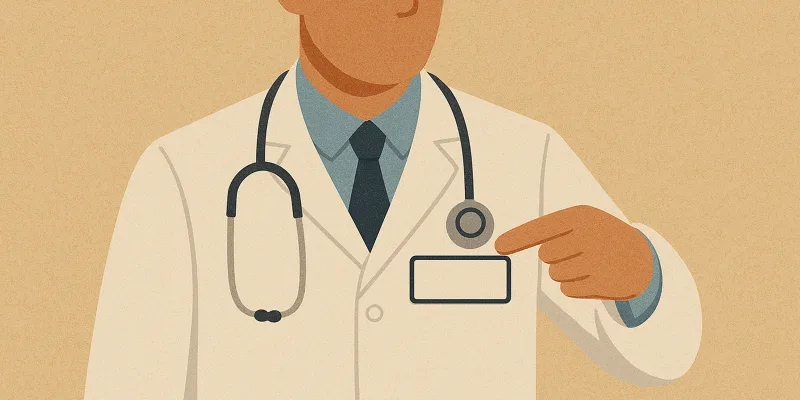
The holiday season is the time of year when budgets are spread thin. For some people, it does not take much financial stress to push them beyond their means. With that comes some very tough decisions. One of the first things some patients will consider forgoing are medical treatments.
In my clinic, we have a "special fund" we use, typically for acute needs such as antibiotics, breathing treatment vials, and over-the-counter medicines patients cannot afford. This "special fund" is our wallets. We routinely refer patients to social services for their long-term medications; for blood pressure, diabetes, thyroid, COPD, and the like, as we cannot fund any patient long-term from our own pockets (which would not be ethical). However, the ethics of the one-time funding are still questionable. We cannot help everyone all the time, so how do you choose? How would you feel if you could not afford your medicine, and so went without, but your neighbor told you how the clinic staff bought their medicine?
Yet, at the basis of medicine, are we not there to first do no harm, and then try to do some benefit? If we have $5 in our pocket, and the patient has nothing, do we do harm by ordering amoxicillin for a strep throat, knowing the patient cannot afford it, and will not receive it, while in our pocket is enough expendable money to prevent this from happening? Is there harm in leaving them at risk of rheumatic fever, with possible cardiac and renal insult? The answer is not clear. I put forth to my twitter followers the question of whether they had helped patients purchase medicine, either acute or long-term, by giving them money out of their own pockets. The entirely biased, non-blinded, survey of people who like the way I think indicated a majority (85%) of respondents had. Though this information is severely skewed, it at least shows there are others out there acting as I have.
One case where we dipped into the "special fund" stands out. Recently, a young child I saw had nausea, vomiting, and diarrhea, with possible mild early dehydration. This young man did not need IV fluids, was not a candidate for admission, but did need continuous monitoring by his mother, and she needed to push fluids via the oral route the best she could.
I advised her that the best fluid the child could drink during his illness would be pedialyte in small spaced doses. She asked how much that cost and I told her about $10 at the grocery store in town. She nodded and appeared to be on her way. A moment later, my clinic nurse was in my office: "Can I borrow $10?" I had more than that from a pop fund co-workers voluntarily feed when they swipe a soda from my mini-fridge, so I handed it over without a second thought.
Early the next week, she paid me back. "That was for Charles' pedialyte by the way. When she left last week his mom told me she didn't have any money until today, so I gave her some money to get him through the weekend." I told her to give me $5 back and we would split the cost. That $10 could have been the difference between him barely getting enough electrolytes and fluid in and being fine, or not doing well the next 48 hours, winding up in the ED lethargic, and possibly admitted to the hospital for observation.
While I love to help, the problem I see in this assistance is where do you draw the line? It is easy to buy a pediatric patient some pedialyte, not hard to justify amoxicillin for strep throat or an ear infection, but how much is too much? The most we have historically pooled together was $20 for amoxicillin, duonebs, and the nebulizer rental. Is $20 too much to give one patient? Why do we not give every patient with otitis media and reactive airway disease this much money on the way out the door? Will this patient expect that they can now plead poverty at every visit, and we will produce the money they request on the way to the pharmacy? What if there are siblings exposed to the confirmed strep pharyngitis, do we pay for prophylactic antibiotics too? Let them get sore throats then charge them for the clinic visit and lab, but then we pay for the medicine? The area we tread in when we pool together funds is very gray, and such a minefield of moral and ethical quandary, the only solace I can take in disclosing my actions is that it is only in very rare cases (maybe five times a year) and typically around the holidays, as that is respiratory season, but also when money gets tight.
It was good to see in my twitter poll, despite its shortcomings, that I am not alone. It makes me feel better as I walk the fine line of this issue that I am not going rogue and running amok, violating medical moral-ethical codes, putting my license at risk. It makes me feel as if, yes, in rare and certain situations, when you know there is no other way and the delay the patient will experience otherwise will affect their health, it may very well be acceptable to help a patient receive the care they need. Even if that means dipping into your own (and the nurses’) pockets.
What do you think of buying medication for a patient? How far is too far for you?
Sean is the lead advanced practice provider at Decatur Health, Oberlin, Kansas. He enjoys writing not only online, but has published a book Through the Eyes of a Young Physician Assistant. When the outdoors call, it is to go golfing, fishing, or hunting with his sons. He tweets at @SeanConroyPAc. Sean is a 2019-2020 Doximity Fellow.







